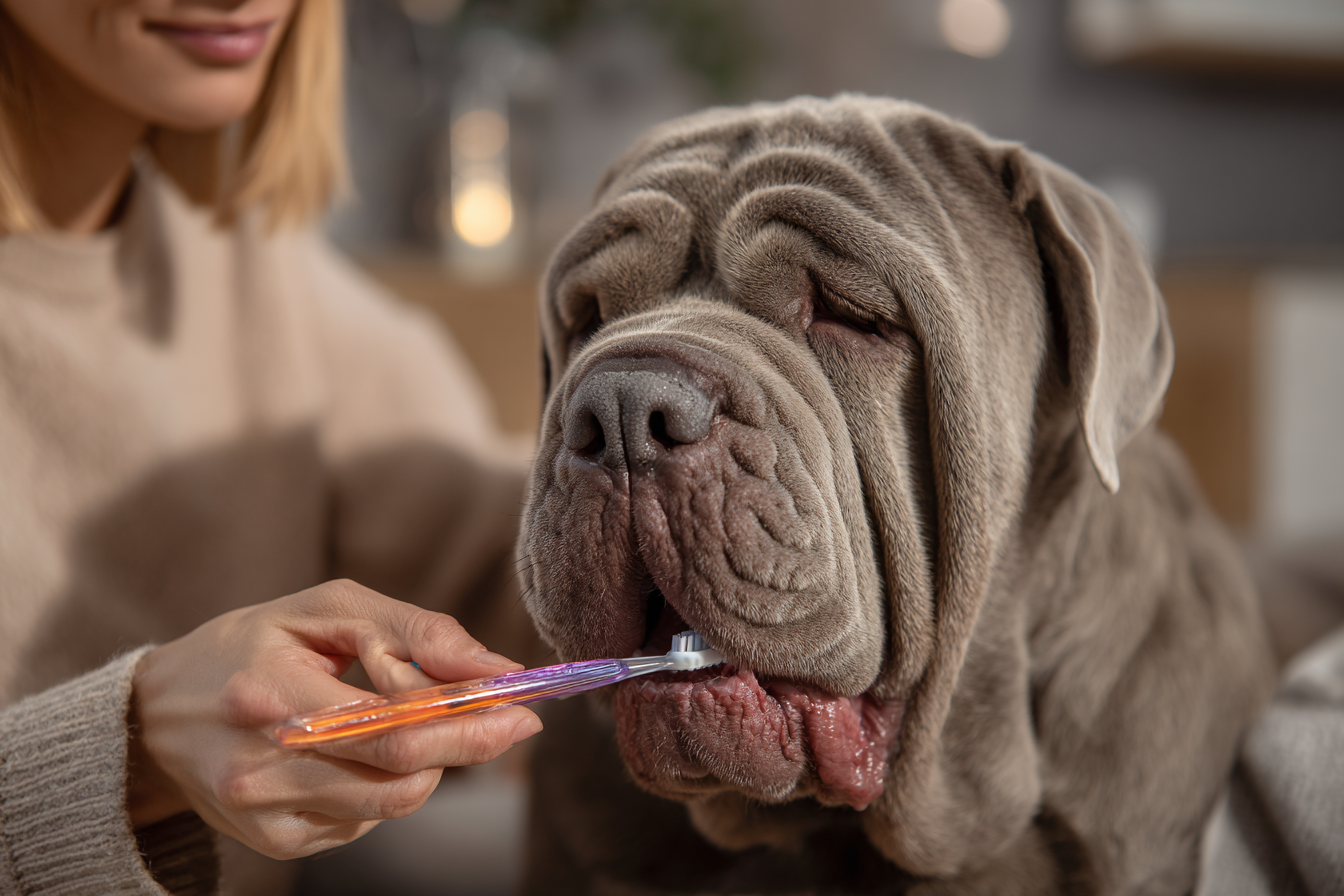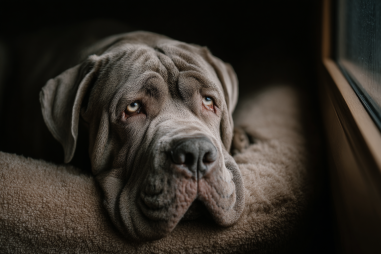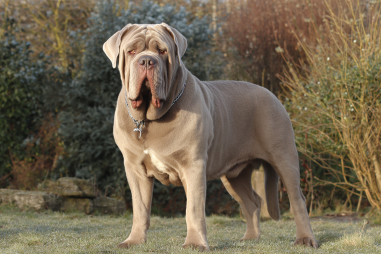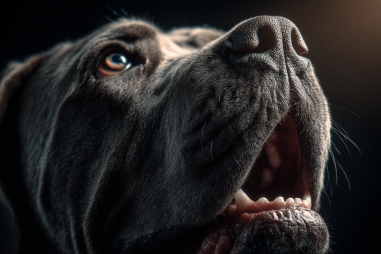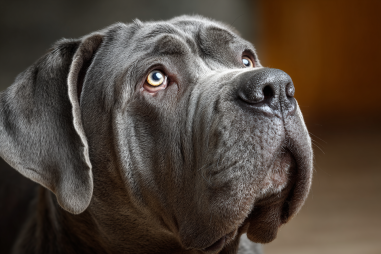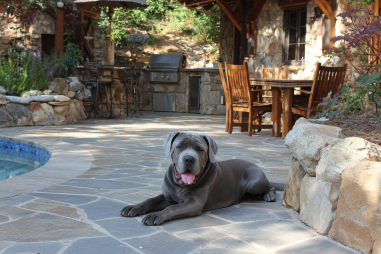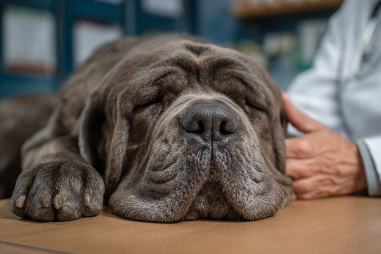Taking care of your Neapolitan Mastiff’s dental health is an important aspect of ensuring they live a happy, healthy life. These gentle giants, with their massive size and unique facial structure, have specific dental needs that deserve attention. Poor dental hygiene can lead to serious health issues, including gum disease, tooth loss, and even systemic infections that affect the heart or kidneys. By implementing effective dental care strategies, you can help maintain your Neapolitan Mastiff’s pearly whites and overall wellness.
Importance of Dental Health in Large Breeds
Large breed dogs like the Neapolitan Mastiff are particularly prone to dental problems due to several factors. Their big jaws and powerful bite generate more force, which can sometimes cause faster wear and tear on their teeth. Additionally, the folds and wrinkles around their faces can trap food particles and bacteria, increasing the risk of plaque buildup and gum disease.
Maintaining good oral hygiene is critical not only to prevent tooth decay and periodontal disease but also to avoid more severe consequences. Dental infections can enter the bloodstream, potentially affecting vital organs such as the heart and kidneys. Regular dental care can help your Neapolitan Mastiff avoid painful dental issues and costly veterinary treatments while improving their quality of life.
Recommended Brushing Techniques and Tools
Brushing your Neapolitan Mastiff’s teeth regularly is one of the most effective ways to maintain dental health. Here’s how you can approach this task:
- Choose the Right Tools: Use a dog-specific toothbrush or a finger brush, both of which are gentler on your dog’s gums. Human toothbrushes can sometimes be too abrasive. Also, always use toothpaste formulated for dogs, as human toothpaste contains ingredients that can be harmful if swallowed.
- Start Slowly: If your dog isn’t used to having their teeth brushed, start by gently rubbing their gums and teeth with your finger to get them accustomed to the sensation.
- Technique: Use gentle, circular motions to brush the outer surfaces of the teeth and the gumline. Focus on the molars and premolars since these areas tend to harbor the most bacteria.
- Frequency: Aim to brush your Neapolitan Mastiff’s teeth at least three times a week, though daily is ideal for optimal dental health.
- Positive Reinforcement: Praise and reward your dog after each session to build a positive association with brushing.
Diet and Chew Toys for Dental Hygiene
A healthy diet and the right chew toys can contribute significantly to your dog’s oral care routine. Feeding your Neapolitan Mastiff a balanced diet that promotes dental health helps reduce plaque and tartar buildup naturally. Dry kibble can provide a mild abrasive action that helps clean the teeth, especially if it’s designed with dental health benefits in mind.
Chew toys are not just a source of entertainment; they serve as a natural way to clean your dog’s teeth and massage their gums. For Neapolitan Mastiffs, it’s essential to choose chew toys durable enough to withstand their powerful jaws but safe enough to prevent tooth fractures or choking hazards. Rubber toys, dental chews, and rope toys can be excellent choices.
Always supervise your dog when they are chewing and replace any damaged toys to prevent accidental swallowing of broken pieces.
Recognizing Signs of Dental Problems
Awareness of common dental issues is crucial to catching problems early and seeking veterinary care when necessary. Watch for these signs that might indicate dental trouble:
- Bad breath even after brushing
- Red, swollen, or bleeding gums
- Difficulty eating or dropping food from their mouth
- Excessive drooling
- Loose or missing teeth
- Visible tartar buildup, especially near the gumline
- Pawing at the mouth or face
- Reluctance to chew toys or eat hard treats
If you notice any of these symptoms, it’s a good idea to schedule a check-up with your vet to prevent further complications.
Professional Cleaning Advice
Even with diligent home care, periodic professional dental cleanings are a must for your Neapolitan Mastiff. Veterinary dental cleanings involve thoroughly removing plaque and tartar under anesthesia, cleaning below the gumline, and polishing the teeth. These cleanings are essential for preventing periodontal disease which can be difficult or impossible to fully control at home once it has developed.
Your veterinarian will recommend the frequency of professional cleanings based on your dog’s oral health status. Generally, an annual dental examination and cleaning are recommended, but some dogs may require more frequent visits depending on their individual needs.
During these visits, your vet might also take dental X-rays to check the health of tooth roots and jawbone, detecting hidden problems that are not visible to the naked eye.
Preventative Care Schedule
Consistency is key to maintaining your Neapolitan Mastiff’s dental health. Here’s a simple preventative care schedule to help keep their teeth and gums in top shape:
- Daily to thrice-weekly tooth brushing: Helps remove plaque before it hardens into tartar.
- Regular chewing sessions: Provide safe chew toys daily or several times a week to naturally scrape teeth clean.
- Diet considerations: Offer dental-friendly food and treats that support oral health.
- Monthly dental checks at home: Quickly scan for any signs of gum inflammation, loose teeth, or bad breath.
- Annual veterinary dental exams and cleanings: Professional maintenance to prevent and treat any dental diseases.
By staying committed to this schedule, you enhance your Neapolitan Mastiff’s comfort and reduce the likelihood of painful dental problems.
Taking care of a Neapolitan Mastiff’s dental health doesn’t have to be a daunting task. With the right knowledge, tools, and regular routines, you can effectively keep their teeth clean and gums healthy. Your efforts will pay off with a happier, healthier companion who can enjoy their meals and playtime without discomfort. Remember to consult your veterinarian for personalized dental care advice tailored to your dog’s specific needs.

